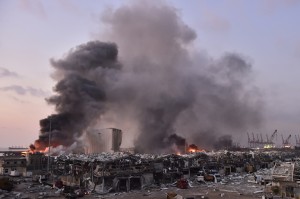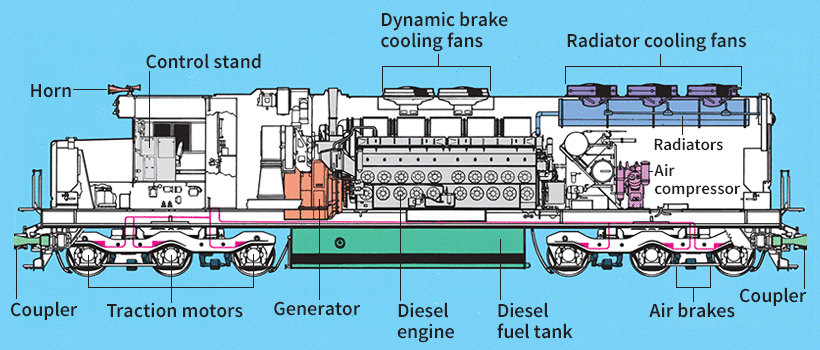Explosions in Beirut
Wednesday, August 5th, 2020
Smoke rises above the devastation in Beirut, Lebanon, on Aug. 4, 2020. Two explosions, the second much bigger than the first, rocked the city’s port area, killing at least 100 and injuring thousands.
Credit: © Houssam Shbaro, Anadolu Agency/Getty Images
On August 4, two deadly explosions rocked Beirut, Lebanon. More than 100 people were killed, and thousands were injured. The blasts were compared in power to an earthquake, because people hundreds of miles or kilometers away felt the explosions.
No one knows exactly how the first blast occurred. It may have been caused by stored fireworks. The second explosion was likely caused by a highly explosive chemical called ammonium nitrate. There was a 2,750-ton (2,500-metric ton) stockpile of ammonium nitrate in a warehouse in the area, near the city’s port. The chemical is often used in fertilizer. Fertilizer is a substance that is added to soil to help plants grow.
Lebanon is a small country at the eastern end of the Mediterranean Sea and the western end of Asia. It has been a center of transportation and trade for over 100 years. Beirut is Lebanon’s capital and largest city. About half of the country’s people live in the Beirut area.
The blasts damaged many businesses and homes. Hundreds of thousands of people were displaced (forced to leave their homes). The devastation and destruction reminded many residents of the country’s decades-long civil war. A civil war takes place between people of the same country. Political differences between groups of Lebanese Christians and Muslims erupted into civil war in the mid-1970′s. Other rival groups also engaged in fighting. The conflicts caused much death, destruction, and damage to the country’s economy. A peace plan ended most of the fighting in 1991.
The explosions occurred while the entire world was struggling with the COVID-19 pandemic (global outbreak of disease). Hospitals that were reserved for patients suffering from coronavirus shifted to treating people injured by the blasts. In the explosion zone and elsewhere, people continued to search for missing friends, family, and others.



